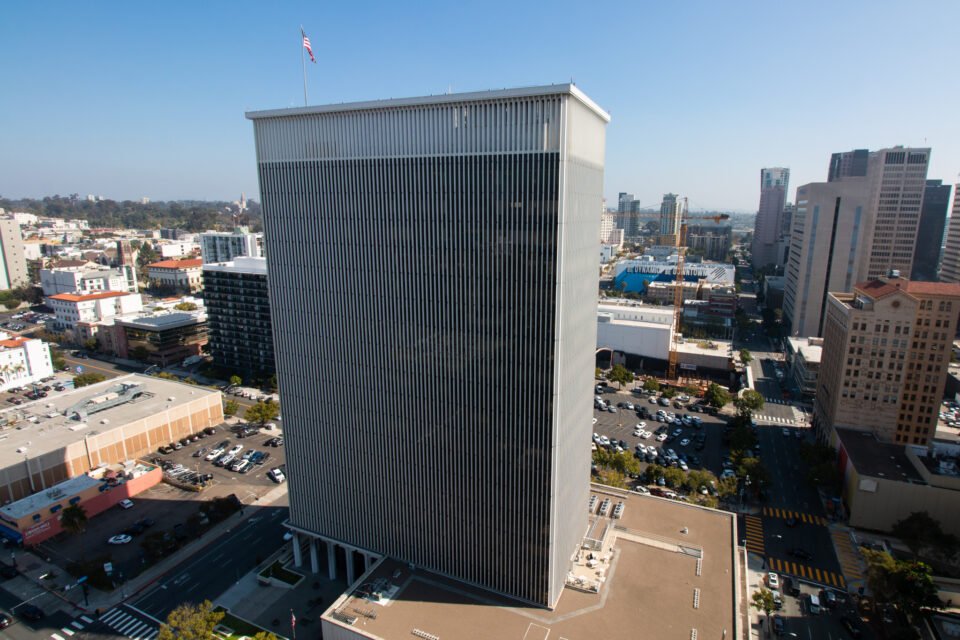A San Diego Superior Court judge ordered a stay on the state Department of Real Estate’s plan to revoke former city real estate adviser Jason Hughes’ real estate license effective Friday.
In response to an action filed by Hughes seeking to halt the removal, Judge Carolyn M. Caietti said she thought it was appropriate to maintain the status quo given the harm that could result if Hughes’ license was pulled.
Refresher: Hughes pleaded guilty to a single misdemeanor conflict-of-interest charge last year, months after the revelation that the city’s 101 Ash St. landlord paid him $9.4 million for his work on two city lease deals. Hughes had previously argued he was not covered by the state’s premier conflict-of-interest law and that he told multiple city officials he wanted to be paid. He later repaid the $9.4 million to the city. In a proceeding last year, Hughes testified that the criminal investigation and civil cases tied to the 101 Ash deal hurt his family and tarnished his reputation, and that he was unfairly targeted. The criminal misdemeanor charge was formally expunged earlier this month.
The state’s pushback: Deputy Attorney General Andrea Schoor-West argued the state should be allowed to proceed with revoking Hughes’ license.
“His continued claims that he did nothing wrong and was scapegoated are exactly what led the commissioner to conclude that petitioner has not truly been rehabilitated and those facts are what show that a stay would be against the public interest,” Schoor-West said after Caietti shared her tentative ruling. “Real estate brokers, as the commissioner said, act as fiduciaries to their clients and occupy a unique position of trust and responsibility toward the public.”
Caietti upheld her tentative ruling after hearing from Schoor-West and scheduled another hearing for Aug. 16.
Prior to the Thursday hearing, a spokesperson for Hughes argued state Real Estate Commissioner Chika Sundquist’s decision to pull his license was “grossly unfair” since an administrative law judge previously recommended only a $4,000 fee for the costs of that proceeding.

